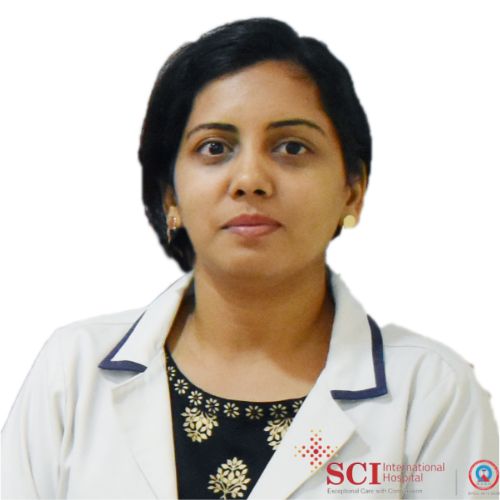The ovaries are a vital part of the female reproductive system, located in the lower abdomen on both sides of the uterus. They are about the size and shape of an almond.
During the reproductive years, the ovaries release eggs each month and produce essential hormones like estrogen and progesterone.
Sometimes, fluid-filled sacs called cysts form inside or on the surface of the ovaries. These cysts are common and usually harmless, often disappearing on their own within a few months. However, if a cyst ruptures, it can cause severe symptoms. Regular pelvic exams are important to detect any potential health issues early.
We Are Rated
Consult Now
Common symptoms of an ovarian cyst are:
The following are the common causes of ovarian cysts:
The doctor may suggest you either shrink or remove the ovarian cyst if it won’t go away on its own or grow larger. Here are the popular treatment options:
Birth control pills
For recurrent ovarian cysts, the specialists may prescribe you oral contraceptives for stopping ovulation and avoiding the formation of new cysts. Birth control pills also help in reducing the risk of ovarian cancer.
Surgery:
SCI Hospital is a leading hospital in Delhi for treating ovarian cysts through advanced techniques. We have advanced Ultrasound Devices, MRI, and CT Scan devices for frequent monitoring and determining whether the cysts are functional or not.
People across 55+ countries trust our experienced medical professionals due to the following reasons:
Best Care for High-Risk Disorders: We also have high-risk multidisciplinary specialists to ensure all our patients get the best treatment for complicated medical conditions.

DGO, MBBS, Obstetrician, Gynecologist, Infertility Specialist

DNB - DGO, MBBS, Gynecologist, Obstetrician

MBBS, MD, DNB - Obstetrics & Gynecology, Infertility Specialist
The common treatment for ovarian cysts is removal by laparoscopy.
The most common cause of ovarian cysts is hormonal problems.
Large cysts (>5 to 10cm) are the ones that require surgical removal as compared to small-sized cysts.
The removal of an ovarian cyst may require treatment, but it doesn’t affect the person’s fertility.
Consult Now
